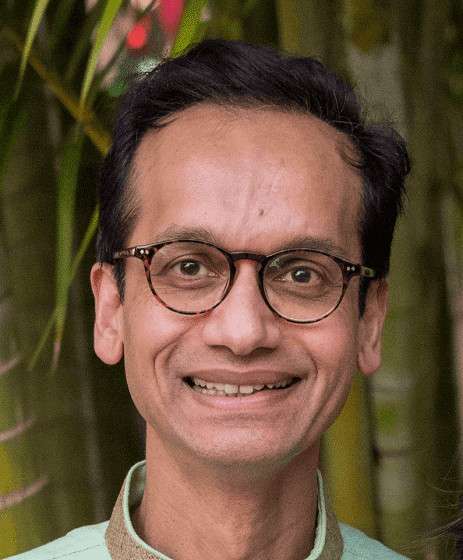
Muppies Global invited Dr. Shakil Ahmed for a fireside chat to discuss his experiences in the finance and quant industry. Below are a few highlights from the conversation.
Background
Dr. Ahmed majored in Computer Science at UC Berkeley, eventually completing his Ph.D. in the same field.
When he was just beginning his professional career, Wall Street firms were actively hunting for technically savvy applicants. Dr. Ahmed landed a job at Morgan Stanley, the investment bank that became one of the pioneers of quantum computing.
Instagram Feeds
Recent Posts
Housing Request
Muppies DC Ski Event
Muppies NYC End of Year Lunch
Atlanta: Kickoff
Muppies DC: Podcast Club
Dr. Ahmed quickly found his way to a leadership position when his team lead decided to take a break from work and awarded him the position. Thanks to his level-headed personality and interpersonal skills, his team members proved to be very supportive.
However, as someone who was primarily focused on computing, Dr. Ahmed was not as knowledgeable about markets and investments, required for his new managerial role. He took this opportunity to learn on the job and grow his skill set.
Dr. Ahmed found himself in a stressful position as a team lead — he not only had to be concerned about his own role in the equation but also had to ensure that every other part of the process was working smoothly.
In his new position, Dr. Ahmed learned about risk management processes and techniques and delved into ideas about how the team and the prop trading business at Morgan Stanley could grow.
The Models Used
One of the main models Dr. Ahmed and his team were actively involved in was the Quant Fundamental Model, which mimicked the behavior of a fundamental individual or trader with the help of quantitative models. These quantitative models use every bit of data available on a large scale in order to build an informed portfolio.
In the Statistical Arbitrage Model, specifically in the equity space, forecasting is done to predict or estimate how every asset/stock would perform in comparison with the market. Hence, through this model, one can go long if the asset is expected to out-perform the market and go short if it is expected to under-perform. This strategy allows one to balance the portfolio in a market-neutral way and be diversified enough to minimize losses and maximize returns.
Challenges
Dr. Ahmed faced challenges when it came to working with different personalities in an industry that involves huge stakes. While bull-dozing your way out of a conflict using your authority and position is one strategy, one of the most important traits that helped Dr. Ahmed deal with workplace conflicts was his empathy in understanding what the other person wants to achieve through his standpoint. This eventually helps in finding a middle ground to resolve a conflict and mitigate the chances of it escalating.
The Next Step
For almost a year after vacating his post at Morgan Stanley, Dr. Ahmed remained a senior advisor until completely leaving the company in 2007. He got the chance to connect with several big names in the Hedge Fund world, almost all of whom offered Dr. Ahmed a position. However, in early 2008, Dr. Ahmed decided to join Citibank, primarily because of the people there that he knew and had a good working relationship with.
The next year, in 2009, the federally mandated Focal Rule was introduced and drastically changed everything about the work in which Dr. Ahmed and his team at Citibank were involved. Prop trading, which was one of the major processes Dr. Ahmed’s mandates revolved around, was something the bank couldn’t indulge in anymore.
Dr. Ahmed started a hedge fund in Princeton, NJ, which he ran for over 4 years. All of his team members boasted solid math and technical skills, in-depth market knowledge, good and relevant intuition, and most importantly, a personality that was a fit for the company.
Over the next several years, Dr. Ahmed witnessed dramatic changes and increases in data sources in the statistical arbitrage space. Some of these data sources and sets were too expensive for smaller hedge funds such as Dr. Ahmed’s.
Consequently, Dr. Ahmed’s hedge fund began generating single-digit returns. The situation created a bottleneck for the firm, as they needed finance to purchase data. However, to be in a position to raise finance, data access was essential. Dr. Ahmed made the decision to shut down the hedge fund entirely.
Because of these advances in the amounts and types of data sets, a large amount of consolidation took place in the investment industry — the large market players became even larger and ran the smaller ones out of business fast.
Trends in Investing
Even though leading players in the quant market, like PDT and Citadel, have been performing excellently over the past 25+ years, this market is at the life cycle stage where new entrants would find it extremely difficult to compete with existing members. One opportunity Dr. Ahmed thinks exists in the quant space is applying the models to assets other than equity or stocks.
According to Dr. Ahmed, investing platforms like digital currency are massively changing the landscape of the investment industry. Blockchain technologies can apply to the fintech industry as well as other industries in many different ways. The crypto space, on the other hand, is extremely volatile. If cryptocurrency is somehow tied to another asset to provide stability in the future, it could be a massive breakthrough.

